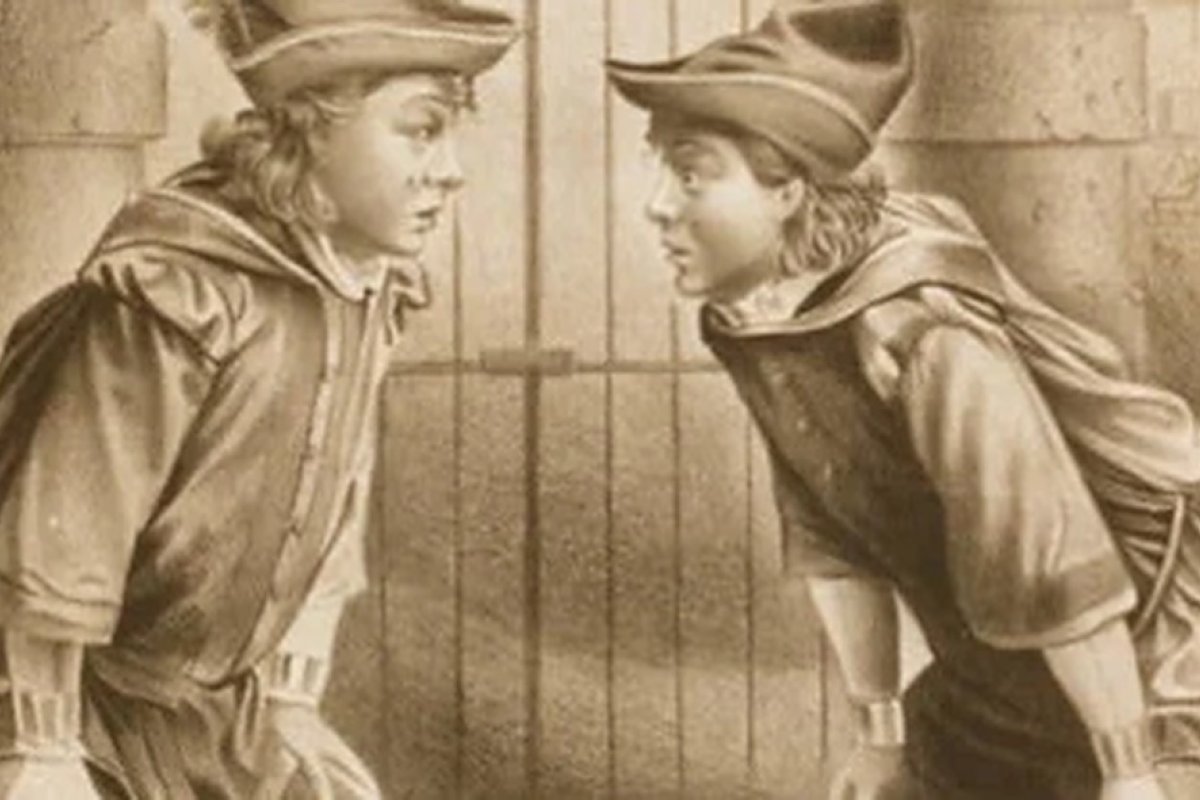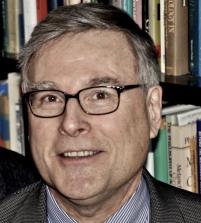
Our Comedy of Errors?
Hapless, misinformed, and zealous, we are living in a comedy of errors, and possibly a deadly one.
"All you earnest young men out to save the world... Please, have a laugh."
- Reinhold Niebuhr
§1
Democratic self-governance protects freedom and yet is under assault in this country. This assault is found not only in the rhetoric of so-called strongmen, but in their followers as well. Some American politicians and news commentators question our support of NATO and Ukraine. A former president promises to pardon January 6th rioters while his party claims that the attack was an expression of "legitimate political speech." On the left, cancel culture runs amok, silencing the democratic idea of freedom of speech. With zeal and determination many are out to "save the world" from local school boards or from imaginary voter fraud by Secretaries of State offices in battleground States. Meanwhile books are banned, Critical Race Theory is unknown yet vilified, and there are endless clashes between vaccination advocates and opponents. Hapless, misinformed, and zealous, we are living in a comedy of errors, and possibly a deadly one.
I cited Niebuhr at the head of this column because seemingly,he is still our most salient public theologian. While I will get to this quote in due time, another, better known quote can help us enter into the deeper meaning of his address to "earnest young men." Famously, Niebuhr noted that "Man's capacity for justice makes democracy possible, but man's inclination to injustice makes democracy necessary." Let me examine that claim first and then move to our comedy of errors. and how a pause to laugh at ourselves might heal divisions among us.
§2
The capacity for justice is a form of self-transcendence, meaning that justice requires recognition of the other and what she or he is due. If I do not have the capacity to see and act beyond my own self-interest, how could I possibly be grasped by the claim of others to justice? Liberal political theory never held we could completely overcome self-interest, nor need we do so. What is required is the recognition of others' claims to justice by intuition, fellow-feeling, a regulative ideal, or some imagined condition, like John Rawls' "veil of ignorance." In this sense, Niebuhr too was a liberal. To be sure, the tentacles of self-interest are wily and profound. Do we ever escape the grip of the "fat and relentless ego," as Iris Murdoch once put it? To judge one's own egoism, is, in a way, to escape it, at least momentarily. The capacity or condition that makes the self-transcendence of justice possible is freedom. This is why Niebuhr, and others before and after him, define the self-transcendence in the work of justice as a liberation from the grip of the ego in order to love and act justly. Niebuhr thought that individuals had this freedom much more than groups who jealously and unrelentingly guard and extend their interests. To lose the self in the group, the mob, a mass of people is to have one's self-transcendence and sense of justice easily thwarted.
On Niebuhr’s account of self-transcendence and its condition of freedom, justice makes democracy possible. Insofar as democracy requires the mutual recognition of citizens, gives them their just due, and allows free participation in the people’s self-governance, democracy is a political form of the capacity for justice, our ability to transcend ourselves. Yet, as Niebuhr notes, our inclination to injustice means that we remain bound by the drives of the ego, especially those who wish to save the world in their own image. Democracy as a form of self-transcendence is also necessary, because it thwarts the grasp of the self's or the group's ego.
Political freedom, rightly conceived, is bound to the demands and obligations of justice. And yet we are witnessing the morphing of such freedom into simple personal or group preferences. If one does not like an opinion or a statement or person, simply dismiss it, her, or him. If masks are mandated by the government, I need not heed it. In sum, self-interest and mob interest threaten to swallow our capacity for justice, causing the freedom that makes democracy possible to falter on every side of civil life.
Truth be told, we are living in a "comedy of errors." Shakespeare's play by that name is the farcical adventure and misrecognition of two sets of identical twins separated in a shipwreck. They unwittingly meet to the confusion of townspeople and their own acquaintances since no one, including the twins, know that both sets of twins are now in town. Of course, in the end everything is resolved and even the parents are reunited with the twins. It is a genuine comedy. American politics at present does not seem like much of a comedy. Americans do not seem to recognize their fellow Americans, driven by an obsession with group identities. Yet how best to reclaim the genuine freedom that is more than license and curbs injustice? Niebuhr’s advice is surprising: “please, have a laugh.” What could that mean?
§3
Irony and laughter take many forms, but can, when rightly practiced, liberate constricted lives from their zealous quest to save the world, always in their own image. More pointedly, there is something in the religious sensibility about the clutches of the ego, the struggle of good and bad in ourselves, even--dare one say it--sin, that hopes for the release of laughter. Laughter can reveal one's own foibles, the lunacy of bigotries, our craven propensities, our sin, and, since we are never utterly fallen, disclose the sheer humanity of others. It can also expose the Emperor's New Clothes. No wonder that humorless tyrants suppress any form of comedy that approaches social criticism. Recall that the book hidden and guarded in a monastic library in Umberto Eco's The Name of the Rose (1980) was a copy of Aristotle's lost work on comedy. And yet, when we can laugh at ourselves, there is transcendence of our inclination to injustice. Think, for example, of the White House Correspondence Dinners where Presidents as different as Barack Obama and George W. Bush used to rib themselves and others. Watch them on YouTube. Sadly, the previous president did not and, probably, could not avail himself of such laughter at himself. But such laughter can loosen the grip of our dear selves and partisan zeal.
Laughter of the right sort can, as Niebuhr suggests, purge the earnest zeal of self-proclaimed saviors of the world. In this way, it might just bind up the self-inflicted wounds of our democracy. Could we even say that our capacity for laughter partly makes just democracy possible, but our inclination to injustice makes laughter necessary? In any case, a pause to laugh at ourselves once in a while may help ensure that our comedy of errors is a comedy rather than a bloody debacle.


